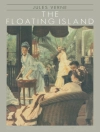In ‘The Second Generation, ‘ David Graham Phillips presents a compelling narrative that explores the complexities of American life in the early 20th century. Through his nuanced characters and engaging prose, Phillips delves into themes of social class, ambition, and the moral dilemmas faced by the burgeoning middle class. The literary style is marked by a blend of realism and emotional depth, reflecting the transitional societal norms of an era grappling with rapid industrialization and shifting values. As a significant work within the naturalist literary movement, it examines the influences of heredity and environment on individual destiny, while also forging an intimate connection with readers through its vividly crafted settings and relatable struggles. David Graham Phillips was a prominent American novelist, journalist, and social critic who was deeply influenced by the societal issues of his time, including corruption and class disparities. His keen observations and personal experiences, particularly as a child of a middle-class family, inspired his creation of multifaceted characters who often face moral quandaries. Phillips’s stint as a muckraker further cultivated his desire to address these themes, allowing him to weave personal and societal critiques seamlessly into his fiction. I highly recommend ‘The Second Generation’ to readers who appreciate rich character studies and social commentary. Phillips’s work not only entertains but also provokes reflection on the very fabric of American society, making it a significant read for both lovers of literature and scholars interested in the interplay of social issues and narrative form.
Yazar hakkında
David Graham Phillips (1867–1911) was a notable American novelist and journalist of the late 19th and early 20th centuries. Born in Madison, Indiana, Phillips was known for his incisive and critical examination of the American social and political system. His body of work often laid bare the stratification and hypocrisy he perceived within society, particularly as it related to the influence of the wealthy. Graduating from Princeton University in 1887, Phillips initially pursued a career in journalism. He wrote for several newspapers before dedicating himself fully to literature. One of his key novels, ‘The Second Generation’ (1903), echoes Phillips’ preoccupations by dissecting the complexities and moral compromises of the children of wealthy parents as they grapple with their inherited status and privilege. A hallmark of Phillips’ literary style is his piercing narrative voice that challenges societal norms. His novels typically combine social critique with compelling storytelling, providing insight into the human condition while probing the socioeconomic fabric of his time. Tragically, his career was cut short when he was assassinated in 1911 by a deranged individual who misinterpreted one of Phillips’ novels as a personal attack. Despite his untimely death, Phillips left a lasting legacy through his influential written works that continue to invite reflection on the nature of power and moral responsibility in America.












